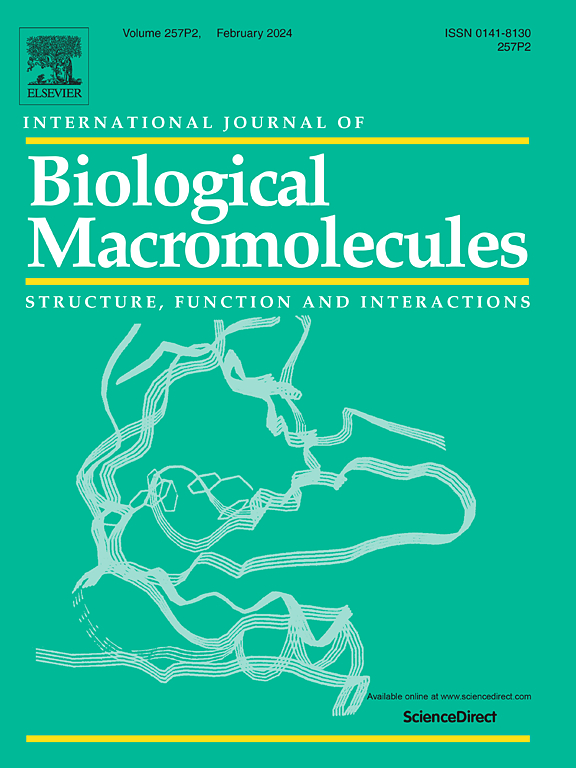91种循环炎症蛋白与妇科疾病的因果关系:一项双样本双向孟德尔随机研究
IF 7.7
1区 化学
Q1 BIOCHEMISTRY & MOLECULAR BIOLOGY
International Journal of Biological Macromolecules
Pub Date : 2025-05-27
DOI:10.1016/j.ijbiomac.2025.144729
引用次数: 0
摘要
妇科疾病对妇女的生活质量和生育能力产生不利影响,对公共卫生构成重大挑战。虽然越来越多的证据表明炎症蛋白在这些疾病的发病机制中起作用,但它们的因果作用仍不清楚。在这项研究中,我们进行了双向双样本孟德尔随机化(TSMR)分析,以探索91种循环炎症蛋白与17种妇科疾病之间的因果关系。我们确定了9个具有潜在因果关系的蛋白-疾病对,其中3个在Bonferroni校正后仍然显著,包括IL-1α与宫颈癌风险增加,MMP10与子宫内膜癌风险降低,MCP-1与卵巢良性肿瘤易感性增加。一项综合了独立复制队列数据的荟萃分析进一步表明,IL-1α增加了宫颈癌的风险。为了验证这些发现,我们使用TCGA数据库进行转录组学分析,并通过临床样本的Western blot分析确认蛋白水平表达。总的来说,这些结果为妇科疾病的炎症机制提供了新的见解,并强调IL-1α是一种有前途的因果生物标志物和宫颈癌的潜在治疗靶点。本文章由计算机程序翻译,如有差异,请以英文原文为准。
Causal relationship between 91 circulating inflammatory proteins and gynecological diseases: A two-sample bidirectional Mendelian randomization study
Gynecological diseases pose major public health challenges due to their detrimental impact on women's quality of life and fertility. While growing evidence implicates inflammatory proteins in the pathogenesis of these conditions, their causal roles remain unclear. In this study, we conducted a bidirectional two-sample Mendelian randomization (TSMR) analysis to explore causal relationships between 91 circulating inflammatory proteins and 17 gynecological diseases in a discovery cohort. We identified nine protein–disease pairs with potential causal associations, three of which remained significant after Bonferroni correction, including IL-1α with increased risk of cervical cancer, MMP10 with reduced risk of endometrial cancer, and MCP-1 with increased susceptibility to ovarian benign neoplasms. A meta-analysis incorporating data from an independent replication cohort further suggested that IL-1α increases the risk of cervical cancer. To validate these findings, we performed transcriptomic analysis using the TCGA database and confirmed protein-level expression through Western blot analysis of clinical samples. Collectively, these results provide novel insights into the inflammatory mechanisms underlying gynecological diseases and underscore IL-1α as a promising causal biomarker and potential therapeutic target for cervical cancer.
求助全文
通过发布文献求助,成功后即可免费获取论文全文。
去求助
来源期刊
CiteScore
13.70
自引率
9.80%
发文量
2728
审稿时长
64 days
期刊介绍:
The International Journal of Biological Macromolecules is a well-established international journal dedicated to research on the chemical and biological aspects of natural macromolecules. Focusing on proteins, macromolecular carbohydrates, glycoproteins, proteoglycans, lignins, biological poly-acids, and nucleic acids, the journal presents the latest findings in molecular structure, properties, biological activities, interactions, modifications, and functional properties. Papers must offer new and novel insights, encompassing related model systems, structural conformational studies, theoretical developments, and analytical techniques. Each paper is required to primarily focus on at least one named biological macromolecule, reflected in the title, abstract, and text.

 求助内容:
求助内容: 应助结果提醒方式:
应助结果提醒方式:


